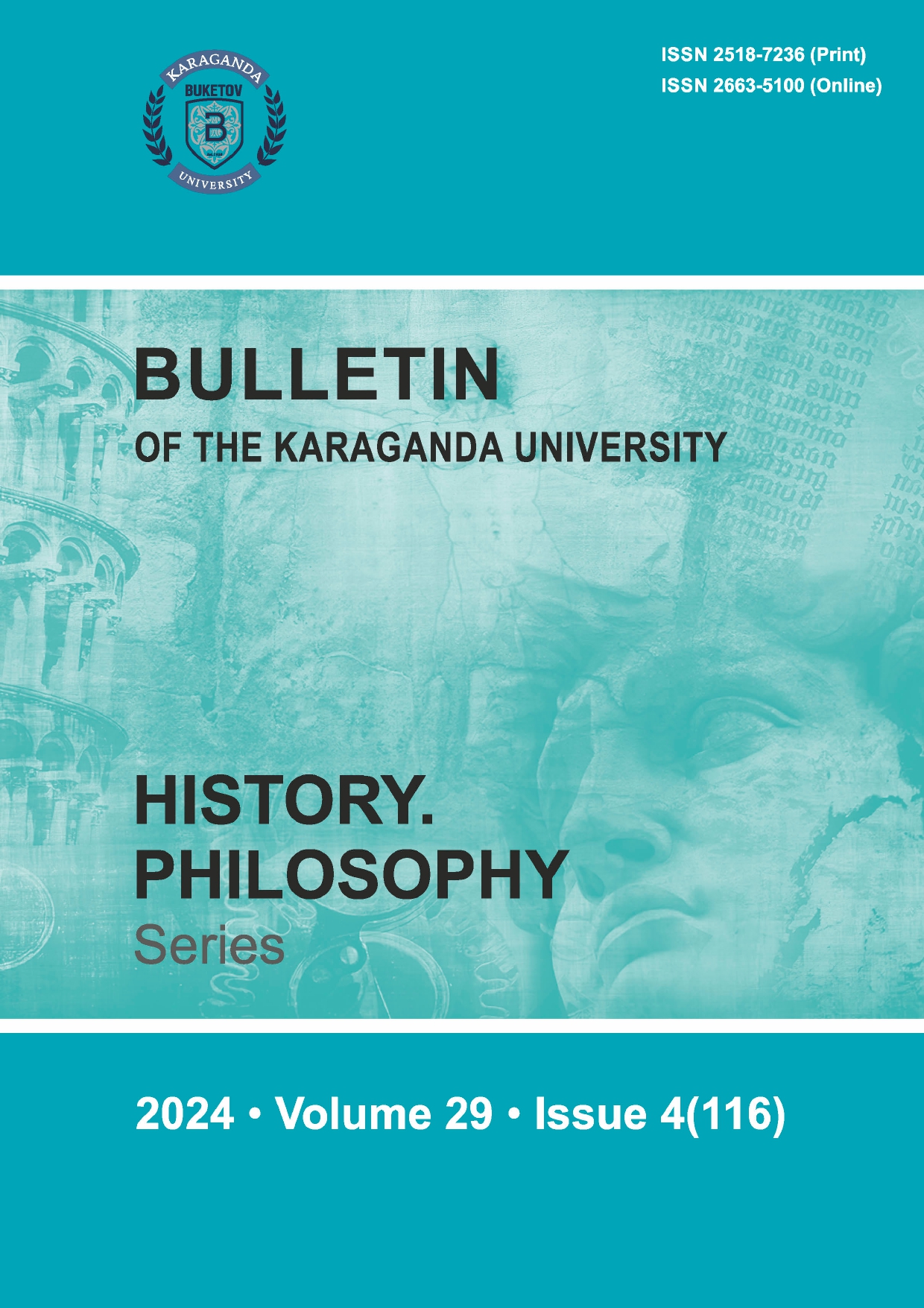Religious education in Akmola region: historical analysis (XIX century and early XX century)
DOI:
https://doi.org/10.31489/2024hph4/7-17Keywords:
Kazakhstan, Akmola, colonial policy, education, Muslim movement, IslamAbstract
The purpose of this study is an in-depth study of spiritual and educational activities in new method schools that influenced the consciousness of Kazakh students during the tsarist period in the Akmola region of Kazakhstan. The article conducted historical analyses of archival documents and scientific works. Additionally, content analysis was carried out to uncover new historical data. The research materials were classified into several factors that characterize the formation of religious and educational institutions as one of the main aspects of the popularization and preservation of Islam. In this regard, the role of Jadidism in different historical periods and its role in preserving Islam in Kazakhstan was assessed. The results obtained indicate that Jadidism played an essential role in the life of the Kazakh people; in the second half of the nineteenth and early twentieth centuries, the desire of the Kazakh people for education was hampered by the colonial policy of the Russian Empire aimed at destroying the language, religion, traditions, and customs of the local population, as well as its Russification. The colonial administration did not attach importance to the development of the education system for the Kazakh people. The results obtained using a qualitative approach served as an empirical basis for considering Kazakhstan's spiritual and educational movement from the Enlightenment perspective.




